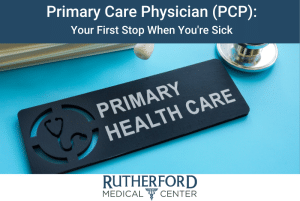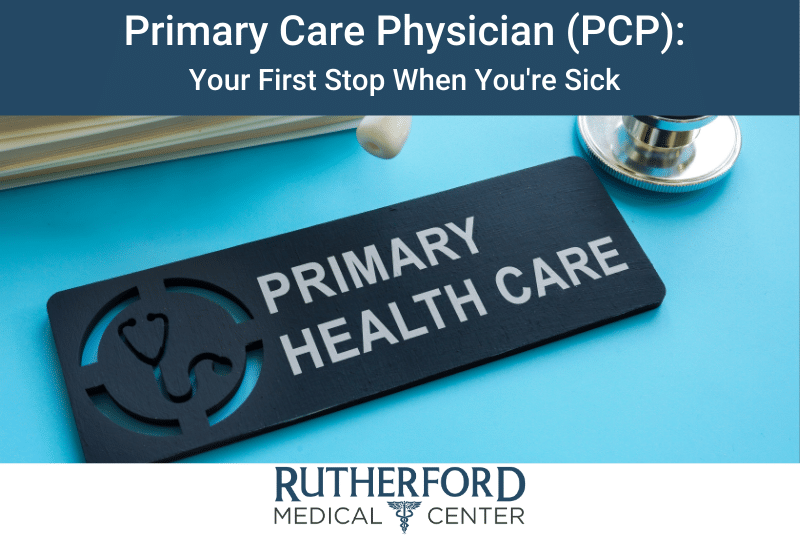June 1, 2025
 When you’re not feeling your best, the first person you should think of contacting is your primary care physician (PCP). Your PCP is more than just a doctor for when you’re sick—they’re a trusted partner in your long-term health. Whether it’s a minor illness or a chronic condition, your PCP is your first line of defense, guiding you toward the right treatments and helping you navigate the complex healthcare system.
When you’re not feeling your best, the first person you should think of contacting is your primary care physician (PCP). Your PCP is more than just a doctor for when you’re sick—they’re a trusted partner in your long-term health. Whether it’s a minor illness or a chronic condition, your PCP is your first line of defense, guiding you toward the right treatments and helping you navigate the complex healthcare system.
What is a Primary Care Physician?
A primary care physician is a medical professional who specializes in general healthcare. They are trained to treat a variety of common ailments, provide preventive care, and offer guidance on healthy living. Think of your PCP as your health manager, who coordinates your care with specialists, ensures you stay up to date with vaccinations and screenings, and helps you manage chronic conditions.
Why Your PCP Should Be Your First Stop
1. Comprehensive Care
Your PCP is trained to diagnose and treat a wide array of health issues. Whether you’re dealing with a cold, digestive problems, or anxiety, your PCP can assess the situation and determine the best course of action.
2. Prevention and Early Detection
One of the most important roles of a PCP is preventive care. Through regular checkups, they can catch potential health problems early, often before you even experience symptoms. Preventive care includes screenings, vaccinations, and advice on how to maintain a healthy lifestyle.
3. Continuity of Care
Your PCP is familiar with your health history, lifestyle, and individual needs. This continuity allows them to provide personalized care and make better decisions regarding your treatment. They can also coordinate care with specialists if necessary, ensuring that your medical records are kept up to date and that any treatments are aligned.
4. Cost-Effective Healthcare
In many cases, seeing your PCP is less expensive than heading straight to a specialist or an emergency room. Since they can handle most health concerns, you’re less likely to require more expensive treatments or tests, saving you both time and money.
5. Long-Term Health Management
If you have chronic conditions like diabetes, hypertension, or asthma, your PCP helps you manage these over the long term. They monitor your condition, adjust your treatment plan as needed, and help you make lifestyle changes to improve your overall well-being.
When to See Your PCP
- For Routine Checkups: Regular visits help keep your health on track and allow for early detection of any potential issues.
- When You’re Sick: Whether it’s a sore throat, persistent cough, or fever, your PCP is the first point of contact.
- Chronic Conditions: If you’re managing ongoing conditions like high blood pressure, diabetes, or arthritis, your PCP ensures your treatment plan is working.
- Minor Injuries: For non-emergency injuries like sprains or minor cuts, your PCP can provide care or refer you to a specialist if necessary.
- Mental Health Concerns: Many people don’t realize their PCP can also help with mental health issues like anxiety, depression, and stress management.
What to Expect During a Visit to Your PCP
A typical visit to your PCP begins with a discussion about your symptoms or health concerns. They’ll review your medical history, conduct any necessary examinations, and order diagnostic tests if needed. Depending on the findings, they might prescribe medication, recommend lifestyle changes, or refer you to a specialist.
Your PCP also takes the time to listen to your concerns, providing reassurance and guidance tailored to your individual situation.
Q&A Section
Q: When should I visit my primary care physician instead of going to the ER?
A: You should see your PCP for non-life-threatening issues such as fevers, colds, minor injuries, or chronic condition management. The ER is best for life-threatening emergencies, such as severe chest pain, difficulty breathing, or serious trauma.
Q: Can my PCP treat mental health issues?
A: Yes, many PCPs are trained to help with mental health concerns such as anxiety, depression, and stress. They can prescribe medications if necessary and refer you to a mental health specialist for further care.
Q: Do I need a referral from my PCP to see a specialist?
A: In most cases, yes. Many insurance plans require a referral from your PCP to see a specialist. Your PCP will determine whether seeing a specialist is necessary and help coordinate your care.
Q: How often should I visit my PCP for checkups?
A: Generally, adults should see their PCP for an annual checkup, but the frequency may increase if you have a chronic condition or other health concerns. Your PCP will recommend a schedule based on your individual health needs.
Q: What should I bring to my PCP appointment?
A: Bring a list of your current medications, any recent medical records, and a list of questions or concerns you have about your health. It’s also helpful to know your family medical history.
Q: Can my PCP help me with preventive care?
A: Absolutely! Your PCP can provide vaccinations, screenings, and advice on how to reduce your risk of diseases like heart disease, diabetes, and cancer.
Contact Information
If you’re looking for a dedicated primary care physician who prioritizes your health and well-being, contact Rutherford Medical Center today. Our team is here to provide comprehensive care, from prevention to treatment.
Rutherford Medical Center
12755 Century Dr, Suite A
Make your primary care physician your first stop for all your health needs. At Rutherford Medical Center, we’re here to ensure you receive the best possible care—whether you’re managing a chronic condition or just feeling under the weather. Reach out to schedule your appointment today!
